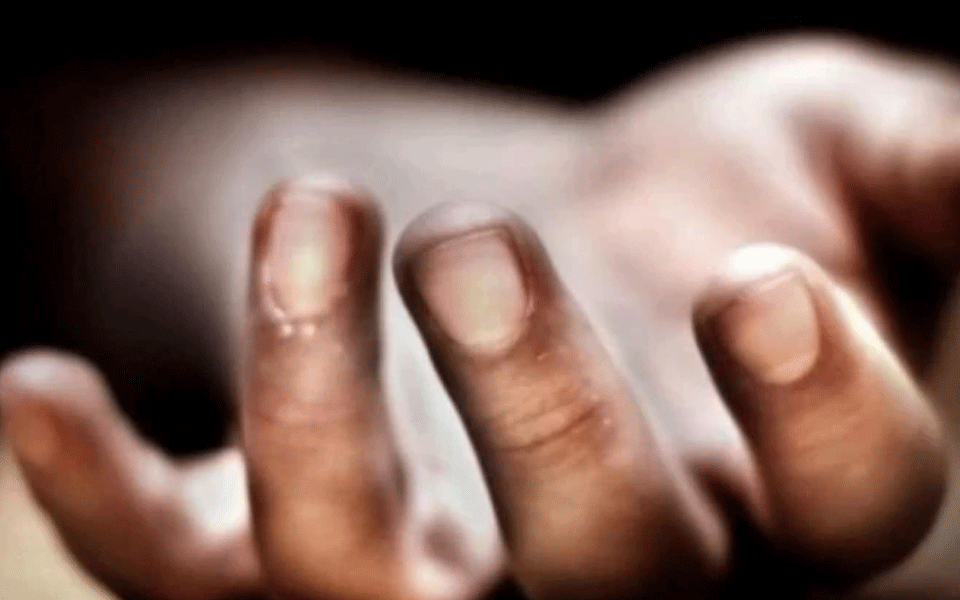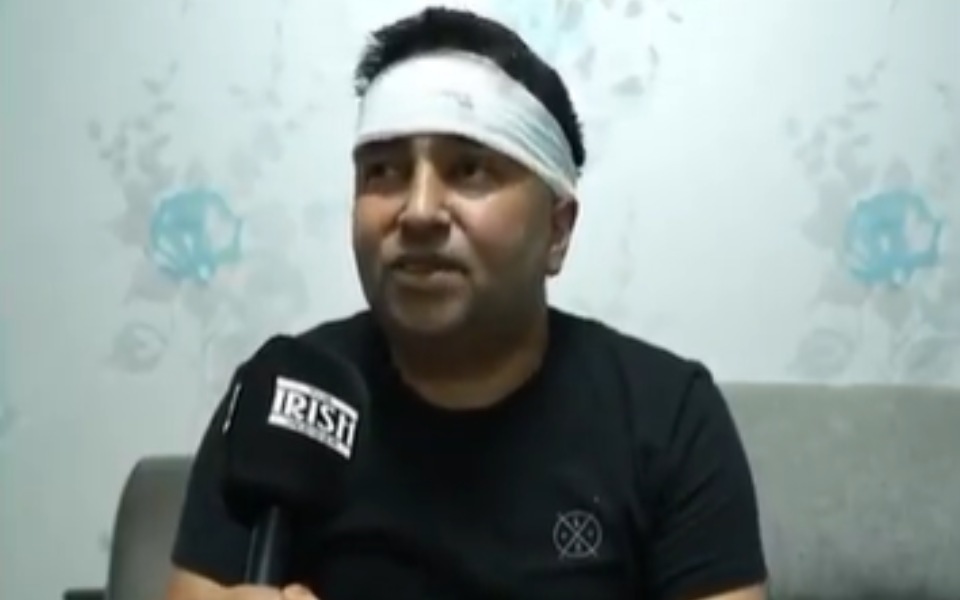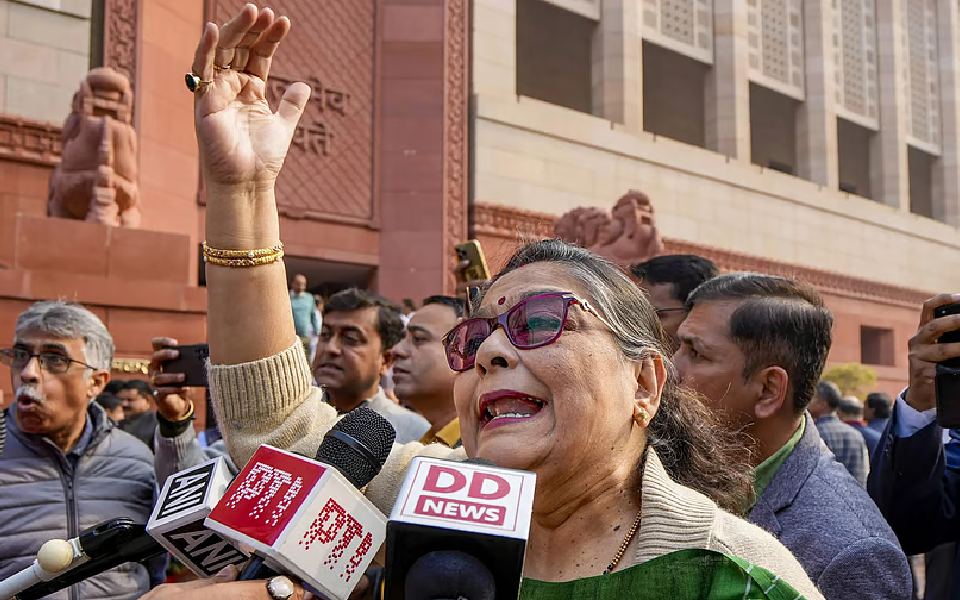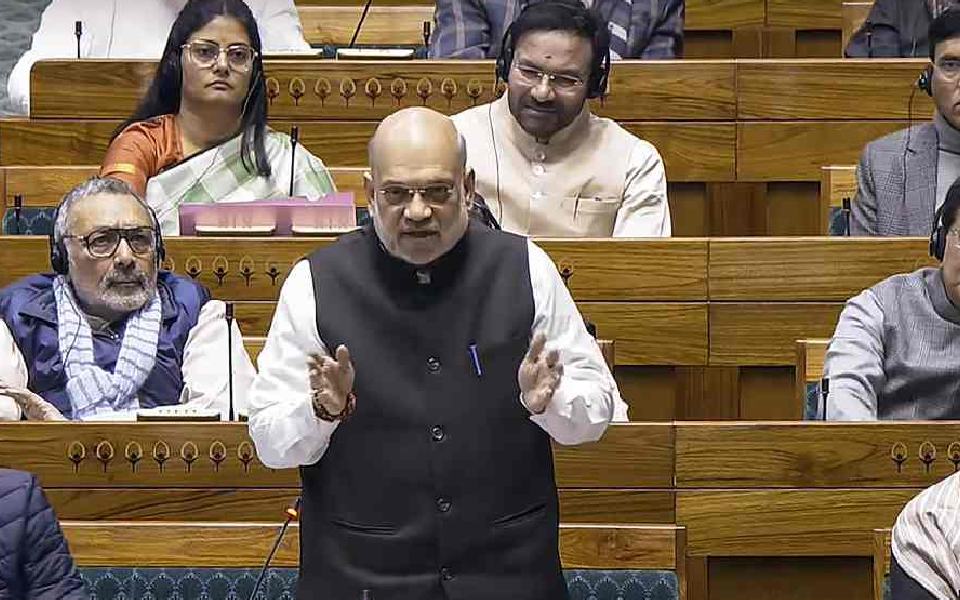New Delhi: India reported an average of 381 deaths by suicide daily in 2019, totalling 1,39,123 fatalities over the year, according to the latest National Crime Records Bureau (NCRB) data.
A 3.4 per cent increase was observed in suicides during 2019 (1,39,123 suicides) as compared to 2018 (1,34,516) and 2017 (1,29,887), the data showed.
The rate of suicide (incidents per 1 lakh population) rose by 0.2 per cent in 2019 over 2018, as per the data.
According to the statistics by the NCRB, which functions under the Union Home Ministry, the suicide rate in cities (13.9 per cent) was higher as compared to all-India suicide rate (10.4 per cent) in 2019.
Suicide by 'hanging' (53.6 per cent), consuming poison' (25.8 per cent), 'drowning' (5.2 per cent) and 'self-immolation' (3.8 per cent) were the prominent means of committing suicides during the year, the data showed.
Family problems (other than marriage-related issues) were behind 32.4 per cent of suicides, marriage-related problems (5.5 per cent) and illness (17.1 per cent) together accounted for 55 per cent of the total suicides in the country during 2019, it stated.
For every 100 suicide deaths, 70.2 were male and 29.8 females, the NCRB, which collects data from police recorded cases, stated.
Nearly 68.4 per cent of the male victims were married, whereas the ratio was 62.5 per cent for female victims, the data showed.
The majority of suicides were reported in Maharashtra (18,916), followed by 13,493 in Tamil Nadu, 12,665 in West Bengal, 12,457 in Madhya Pradesh and 11,288 in Karnataka, accounting for 13.6 per cent, 9.7 per cent, 9.1 per cent, 9 per cent and 8.1 per cent of total such deaths, respectively.
These five states together accounted for 49.5 per cent of the total suicides reported in the country and the rest 50.5 per cent suicides were reported in the remaining 24 states and 7 UTs, the data showed.
Uttar Pradesh, the most populous state, reported comparatively lower percentage share of suicidal deaths, accounting for only 3.9 per cent of the total suicides in the country, it added.
Maximum cases of mass/family suicide were reported from Tamil Nadu (16) followed by Andhra Pradesh (14), Kerala (11), Punjab (9) and Rajasthan (7), the NCRB data showed.
In terms of education, 12.6 per cent victims of suicide were illiterate, 16.3 per cent up to primary level, 19.6 per cent up to middle level and 23.3 per cent up to matric level.
Only 3.7 per cent of total suicide victims were graduates and above, it showed.
The World Health Organisation (WHO) states that suicide is a serious public health problem and is preventable with timely, evidence-based and often low-cost interventions.
Let the Truth be known. If you read VB and like VB, please be a VB Supporter and Help us deliver the Truth to one and all.
London, Aug 5 (PTI): An Indian-origin taxi driver based in Ireland for over 23 years has become the latest to be targeted in an unprovoked attack in the capital Dublin, with local police (Gardai) launching an investigation into the violent assault.
Lakhvir Singh, in his 40s, told local media that he picked up two young men in their 20s on Friday night and dropped them at Poppintree, in the Ballymun suburb of Dublin.
Upon arriving at the destination, the men are said to have opened the vehicle door and struck him twice on the head with a bottle. As the suspects fled, they reportedly shouted: "Go back to your own country".
"In 10 years I've never seen anything like this happen," Singh told ‘Dublin Live’.
"I'm really scared now and I'm off the road at the moment. It will be very hard to go back. My children are really scared," he said.
A Dublin police spokesperson said Singh was taken to the city's Beaumont Hospital with injuries determined as not life-threatening.
"Gardaí are investigating an assault reported to have occurred in Poppintree, Ballymun, Dublin 11 at approximately 11:45 pm on Friday, 1st August 2025. A man, aged in his 40s, was brought to Beaumont Hospital for treatment of non-life-threatening injury. Investigations are ongoing," the spokesperson said.
The incident followed an Indian Embassy advisory, also issued on Friday, expressing safety concerns following recent attacks in and around the capital Dublin and urging Indian citizens to take safety precautions.
"There has been an increase in the instances of physical attacks reported against Indian citizens in Ireland recently,” states the advisory.
“The embassy is in touch with the authorities concerned in Ireland in this regard. At the same time, all Indian citizens in Ireland are advised to take reasonable precautions for their personal security and avoid deserted areas, especially at odd hours," the statement reads, adding emergency embassy contact details as 0899423734 and cons.dublin@mea.gov.in.
It came in the wake of a brutal attack on a 40-year-old Indian man at Parkhill Road in the Tallaght suburb of Dublin on July 19, described as “mindless, racist violence” by locals.
The Gardai had opened an investigation into the case and Indian Ambassador to Ireland Akhilesh Mishra was among those who took to social media to express shock over the attack.
“Regarding the recent incident of physical attack on an Indian national that happened in Tallaght, Dublin, the embassy is in touch with the victim and his family. All the requisite assistance is being offered. The embassy is also in touch with the relevant Irish authorities in this regard,” the embassy said in a social media post days after the incident.
A Stand Against Racism protest was also held by the local community in condemnation of what was described as a "vicious racist attack" and to express solidarity with migrants.
Last week, Dr Santosh Yadav took to LinkedIn to post details of a “brutal, unprovoked racist attack”.
The entrepreneur and AI expert stressed that it was not an isolated incident and called for “concrete measures” from the governments of Ireland and India to ensure Indians feel safe to walk the streets of Dublin.
His post revealed that a group of six teenagers attacked him from behind as he walked to his apartment in Dublin.
“This is not an isolated incident. Racist attacks on Indian men and other minorities are surging across Dublin — on buses, in housing estates, and on public streets. Yet, the government is silent. There is no action being taken against these perpetrators. They run free and are emboldened to attack again,” reads Yadav's post.
Fine Gael party Councillor for Tallaght South, Baby Pereppadan, was among those who expressed concern following last month’s attack.
“People need to understand that many Indian people moving to Ireland are here on work permits, to study and work in the healthcare sector or in IT and so on, providing critical skills,” he said.
Another violent anti-Indian attack in Ireland
— Journalist V (@OnTheNewsBeat) August 5, 2025
Taxi driver Lakhvir Singh was attacked with glass bottles while doing his job pic.twitter.com/mtkwhLWISx





